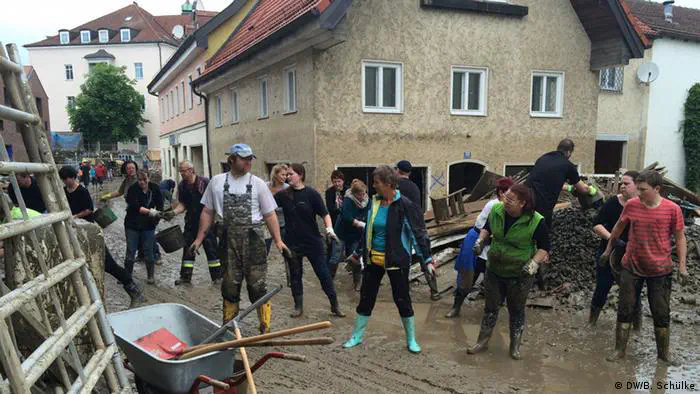Solidarity under heterogenous adaptation costs: Experimental evidence on coping after climate hazards
 Volunteers help in clean up efforts in Simbach western Germany. Source: dw.com
Volunteers help in clean up efforts in Simbach western Germany. Source: dw.com
Abstract
Climate hazards destroy the livelihoods and assets of millions of people worldwide, but also spur solidarity within affected communities. We conducted a pre-registered incentivized online experiment with a sample of 769 UK residents to understand better solidarity behavior framed in the context of flooding. In the experiment, participants make costly adaptation decisions that reduce their own risk of endowment loss. Moreover, they can make solidarity transfers to affected partners if unaffected themselves. Participants are matched with a partner who takes adaptation decisions, too. We experimentally vary the adaptation costs of the partner to be either the same (control condition) or heterogenous (known or uncertain). In the control condition, participants show less solidarity with non-adapted partners than with adapted ones. On average, the heterogenous adaptation cost treatments do not significantly affect observed solidarity transfers. Explorative analyses indicate, however, that differences in transfers to adapted and non-adapted partners are mediated by one’s adaptation behavior. Under known heterogenous adaptation costs, risk-averse players (who adapted themselves) show as much solidarity with adapted as with non-adapted partners. Overall, the results suggest that information about adaptation cost heterogeneity may promote solidarity after exogenous shocks when people cannot easily adapt proactively.